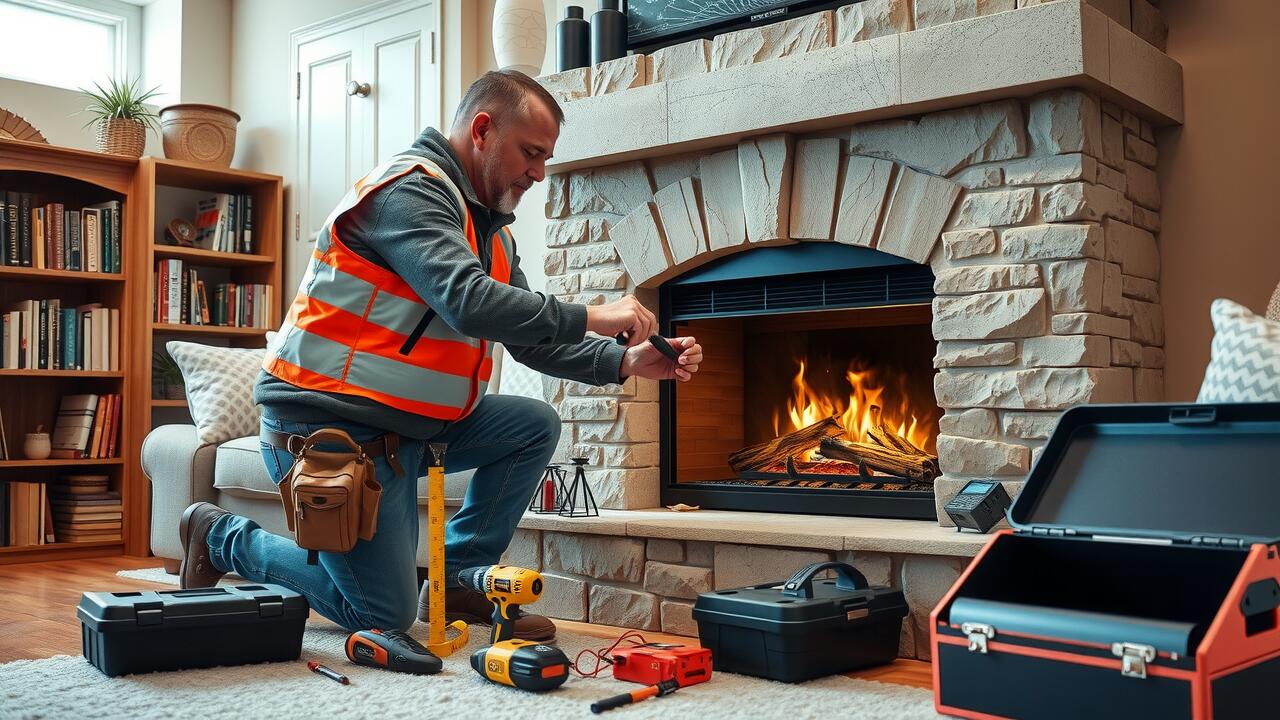Table Of Contents
Permits and Regulations
Before proceeding with electric fireplace installation in your home, it is crucial to familiarize yourself with local building codes and regulations. These rules can vary significantly by municipality, so checking with your local authority can ensure compliance. Some jurisdictions may require permits for the installation, especially if electrical work is involved. Failure to obtain the necessary permits could lead to fines or complications when selling the property in the future.
Additionally, certain regulations may dictate the appropriate location and type of electric fireplace suitable for residential use. This can include distance from combustible materials, proper ventilation, and adherence to electrical safety standards. It is wise to consult a licensed contractor or electrician experienced in electric fireplace installation in your area. They can provide guidance on meeting local requirements while also ensuring the installation is safe and efficient.
Local Codes Impacting Installation Costs
Local building codes can significantly affect the overall cost of Electric Fireplace Installation in a home. Regulations may vary from one municipality to another, so it’s crucial for homeowners to familiarize themselves with local guidelines before proceeding. Some areas may require permits and inspections, adding additional fees to the installation process. Compliance with these codes ensures safety and can affect the type of electrical work necessary to meet standards.
In addition to permits, certain local codes dictate specific installation methods or materials that must be used. For instance, fire safety regulations may mandate particular clearances or the use of non-combustible materials. Homeowners should consider these factors when budgeting for Electric Fireplace Installation in order to avoid unexpected expenses. Neglecting to adhere to local codes could also lead to complications during future property transactions.
Maintenance Expenses Post-Installation
After the installation of an electric fireplace, maintenance expenses remain relatively low compared to traditional heating options. Routine upkeep typically involves keeping the unit clean and ensuring that it functions properly. Many electric fireplaces feature simple designs that make maintenance straightforward, requiring little more than occasional dusting and checking for any signs of wear in the electrical components.
Moreover, costs associated with regular inspections or minor repairs may arise. Although electric fireplaces are generally reliable, unforeseen issues can occur, contributing to maintenance expenses. Homeowners should also consider the potential need for replacement parts over time, although durability is often a hallmark of electric models. Those who choose Electric Fireplace Installation in their homes can expect an overall straightforward maintenance process, often resulting in significant cost savings in the long run.
Long-Term Cost of Ownership
Long-term ownership of an electric fireplace often entails various costs that homeowners should anticipate. Although the initial investment for Electric Fireplace Installation in a residence may be significant, ongoing expenses typically remain lower than traditional heating systems. Electric fireplaces usually require minimal maintenance, and there are no costs related to fuel purchases or exhaust systems, contributing to their overall affordability.
Electric fireplaces also offer energy efficiency advantages that can have a lasting financial impact. Many models provide zone heating, allowing homeowners to selectively heat spaces rather than relying on central systems for the entire home. This efficiency can lead to lower utility bills over time. With their growing popularity, the market for electric fireplaces is evolving, and innovations are likely to enhance their value and efficiency further.
Potential Return on Investment
Investing in an electric fireplace can yield a solid return, particularly when considering home value. Electric fireplaces appeal to a wide range of buyers due to their modern aesthetics and energy efficiency. Real estate experts suggest that incorporating electric fireplace installation in living spaces can enhance the property’s appeal, making it stand out in a competitive market. As more buyers prioritize energy-efficient features, potential resale value can increase.
Additionally, electric fireplaces offer savings on energy bills compared to traditional wood-burning or gas options. The ability to zone heat provides flexibility in managing heating costs while maintaining comfort in specific areas of the home. Homeowners who opt for electric fireplace installation in their residences not only benefit from immediate warmth and ambiance but also from the long-term savings that come with reduced energy consumption. Over time, these factors can transform an initial investment into significant financial benefits.
Energy Efficiency and Value Addition
Electric fireplace installation in a home can significantly enhance energy efficiency. Modern electric fireplaces are designed to provide effective heating with reduced energy consumption compared to traditional heating methods. Many models come equipped with smart thermostats, allowing homeowners to optimize energy use by setting specific heating schedules. This capability reduces overall energy usage, contributing to lower monthly utility bills.
Beyond energy savings, an electric fireplace installation in a living space adds aesthetic value. These installations can serve as attractive focal points in a room, improving the overall ambiance and appeal. Homebuyers often view the presence of an electric fireplace as a desirable feature, potentially increasing the property’s market value. A well-installed unit can elevate not only comfort levels but also the perceived worth of a home.
FAQS
What is the average cost of installing an electric fireplace?
The average cost can range between $300 to $2,500, depending on the type of unit, installation complexity, and additional features.
Do I need a permit to install an electric fireplace?
It depends on local codes and regulations. Some areas may require permits, especially if electrical wiring is involved, so it’s best to check with your local authorities.
What ongoing maintenance costs should I expect for an electric fireplace?
Maintenance costs are generally low for electric fireplaces, typically involving occasional cleaning and bulb replacement, which could amount to around $50 to $100 per year.
How can an electric fireplace impact my home’s value?
An electric fireplace can enhance your home’s appeal and may increase its value, especially if it improves energy efficiency and aesthetic appeal.
Are electric fireplaces energy-efficient?
Yes, electric fireplaces are typically more energy-efficient than traditional wood-burning or gas fireplaces, as they convert nearly all energy consumed into heat without losing warmth through a chimney.



